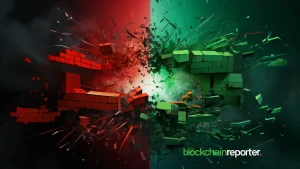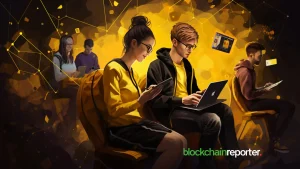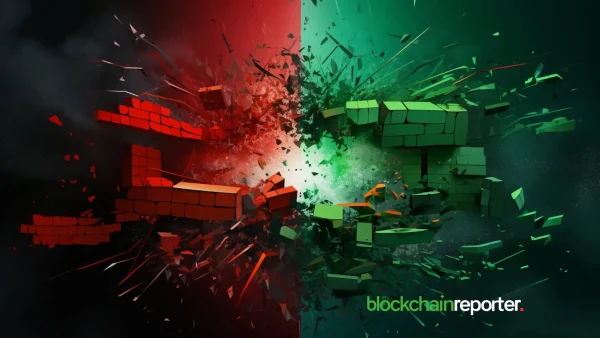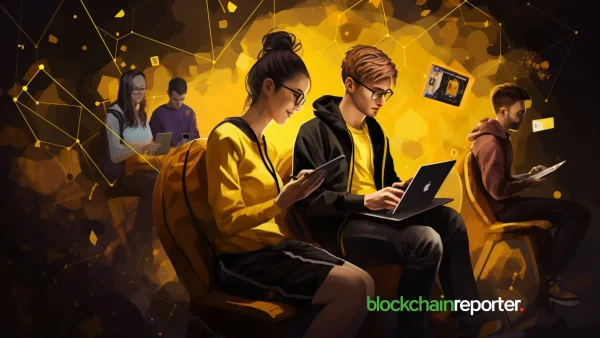
Metaverse is a virtual world where people can live, socialize, play games, work and collaborate from the comfort of their bed in the physical world
Metaverse Introduction
The Metaverse is a persistent online 3D environment that integrates many virtual spaces. It can be seen as a future variation of the internet. Currently, it is not fully in existence as it is still being developed. However, specific platforms have Metaverse-like elements. At the moment, video games offer the best possible Metaverse experience.
As of now, Big tech companies are trying to lead the way to the Metaverse future. But the decentralized nature of the blockchain industry allows smaller players to get involved in its development.
Also, the Metaverse incorporates the cryptocurrency ecosystems. Therefore, NFTs, crypto games, crypto payments, and blockchain games are no longer exclusive to cryptocurrency enthusiasts as everyone in the Metaverse can easily access them.
What Is The Metaverse?
The Metaverse is a blockchain-based virtual reality world that connects people from all walks of life. It is designed to connect many platforms, similar to how the internet connects with multiple websites through a single browser. The concept of the Metaverse is not new. It was initially described in the novel Snow Crash, published in 1992. The idea, which used to be considered fiction, now seems to have the potential to become a reality. Several companies, including Second Life, released in June 2003, have created online communities based on this concept.
Its current concept includes three key elements: a virtual reality interface, digital ownership, and avatars. The Metaverse is powered by augmented reality, where each user controls a character or avatar. For example, you can manage your crypto portfolio and finances within the Metaverse. While it can be several things, it has three main characteristics: presence, standardization, and interoperability.
Presence, the feeling of being in a virtual space with others, is an essential feature of the Metaverse. This feeling is achieved through virtual reality technologies such as head-mount displays that facilitate online interactions. Its interoperability allows users to travel between virtual spaces with the same assets, such as digital items and avatars.
The standardization feature enables the interoperability of platforms and services across the virtual world. Additionally, the Metaverse include various aspects of our lives as it supports social media, gaming, decentralized governance, business, and digital identity, among others.
Difference Between The Internet And Metaverse
The internet is a network of computers and electronic devices that enables users to view and interact with websites and communicate with others. The Metaverse doesn’t compete with the internet because it’s built on it. However, there are slight differences between the two. The Metaverse allows users to traverse and live to some degree in a virtual that mimics aspects of our physical world, but the internet only allows users to browse and does not support these two features.
Also, an internet user can be online without necessarily interacting with other humans, but in the Metaverse, users interact for many purposes, such as work, fun, school, and others, since it is built on digital human interaction.
Relevance of Cryptocurrency In The Metaverse
Video games offer the 3D aspects of the Metaverse, but they don’t meet all the requirements of a virtual world that can encompass all aspects of life.
However, cryptocurrency offers those missing essential components, including decentralized governance, digital proof of ownership, value transfer, and accessibility.
The use of cryptocurrencies in the Metaverse makes it easier to purchase virtual items and provides a more secure way to show ownership. In addition, the foundation for digital ownership is laid by non-fungible tokens (NFTs) and blockchain.
NFTs, which can represent a song, artwork, or digital real estate, play a crucial role in the Metaverse’s popularity and usability and are used to create a digital deed, or proof of ownership, that can be bought and sold in the Metaverse.
Frequently Asked Questions
What is the Metaverse?
The Metaverse is a blockchain-based virtual world where people can socialize, play, work, and engage in digital economies using avatars. It connects multiple virtual environments into one persistent, shared online space that simulates real-world experiences through technologies like virtual reality and augmented reality.
How is the Metaverse different from the internet?
While the internet allows users to browse websites and access information, the Metaverse enables users to immerse themselves in a virtual world. Unlike the internet, the Metaverse supports real-time interaction, 3D environments, digital ownership, and avatar-based social engagement, offering a more immersive and experiential layer built on top of the internet.
What role does cryptocurrency play in the Metaverse?
Cryptocurrency powers the economy within the Metaverse by enabling digital ownership, secure value transfer, and decentralized governance. Tokens are used to buy virtual items like land, clothing, and NFTs, while blockchain ensures transparent and verifiable ownership across platforms.
What are NFTs and why are they important in the Metaverse?
NFTs, or non-fungible tokens, are digital assets that represent ownership of unique items like artwork, music, or virtual real estate. In the Metaverse, NFTs function as digital deeds, allowing users to buy, sell, and prove ownership of their virtual possessions within the ecosystem.
Is the Metaverse already here or still being built?
The Metaverse is still in development, but many platforms offer early versions with Metaverse-like features. Popular video games, virtual social hubs, and blockchain-powered applications are building blocks of what will become a more unified and immersive Metaverse experience in the near future.









